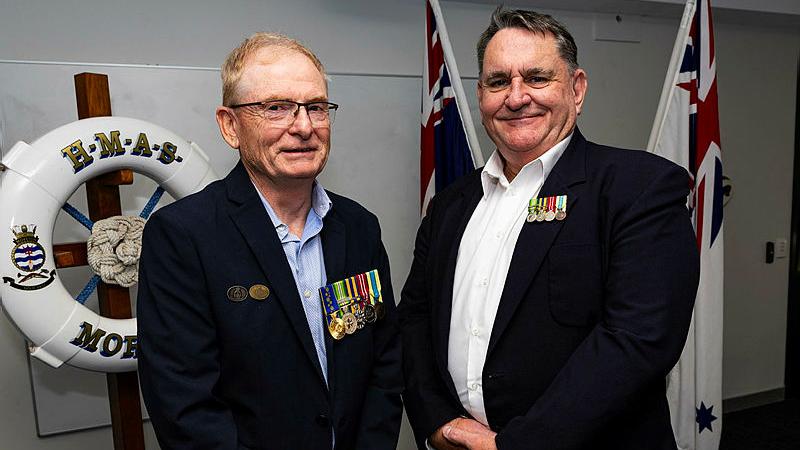An immersive exhibition of First Nations design invites visitors into the creative process through workshops and videos sharing the stories behind the works.
Barangga, an exhibition and program of workshops at UNSW Galleries, celebrates design and making practices as a vital form of cultural knowledge transfer for Australia’s First Nations people. In 2022 UNSW Art & Design Professor of Practice Nicole Monks kicked off barangga as a First Nations-only design gathering. She wanted to build community amongst First Nations designers.
Monks, who is a multidisciplinary creative of Yamaji, Wajarri, Dutch and English heritage, explains: “I wanted to create a space where mob could get together, which is something we don’t really get to do very often, and talk about our industries and how they were evolving.” And so, a group of First Nations designers from fields as diverse as furniture, architecture, public art, textiles and toolmaking, got together and presented to each other. “We held round tables about best practice, designers ran workshops, and we created collaborative artworks.”
“Gathering the design mob together was a way of reconnecting with our shared history,” says Monks, “and also supporting each other in working within the Western design industry. We’ve started to create connections across our networks which will be invaluable in the future for growing a First Nations design industry.”
As they gathered and shared, they found themselves buoyed by each other, grounded by the relationships they built and inspired by the ideas and practices they shared. “When you look at the complexity of design and connection to country you realise how much we have to share. You know NASA are using the boomerang shape? It’s phenomenal the design that has gone into creating an object that can return to you after you can throw it in the sky. I think people have a skewed view about what mob was doing here before colonisation. And the fact of the matter is, there was intricate, complex, innovative use of materials that are still extremely relevant today.”
The barangga mob decided to create an exhibition, which Monks then curated, to celebrate and share design and making practices as a vital part of cultural knowledge transfer in First Nations communities across Australia. And the exhibition coinciding with NAIDOC Week is also by design, as the 2023 NAIDOC theme For Our Elders acknowledges the importance of community practices and intergenerational knowledge exchange, a central part of the process of making for all the artists featured.
“Barangga emphasises the importance of making in continuing our culture, sharing our histories, and creating pathways for the next generation,” says Monks. “It’s not just about that final product. It very much is about those connections creating community learning by doing or touching. It’s the journey that you go on. So, for example, in the exhibition there’s some kangaroo pelt bags that were made with my Elders and children. There was an intergenerational workshop and we all went out to country first, then came back to the city and made the bags.
“For mob, our DNA is imbedded within our making, our person becomes part of our materiality. It’s about those deeper connections. How the making becomes part of the final product.”
Philosophies of sustainability also anchor the artists. “We can make from the body (like hair string) and our environment as well and these are thoughtful and sensitive, so there’s no waste. We make canoes so that we don’t kill the tree… We design systems so the mob down the river will still have plenty. We are aware of the intention of making and magic that is held within belongings and materials. Every time we take from the world around us, we need to think of the multitude of relationships, connections and patterns that that material will affect.”
The exhibition runs until July 30 and includes works by Debra Beale, Sharyn Egan, Luke Russell and Leanne Tobin, alongside a project created by a group of 10 Yamatji women and children. Also on display at UNSW Galleries is ‘Turrangka… in the shadows‘, a 10-year survey exhibition by First Nations artist James Tylor, whose practice combines historical and contemporary photographic processes to explore cultural identity and what he calls “cultural repatriation”.







